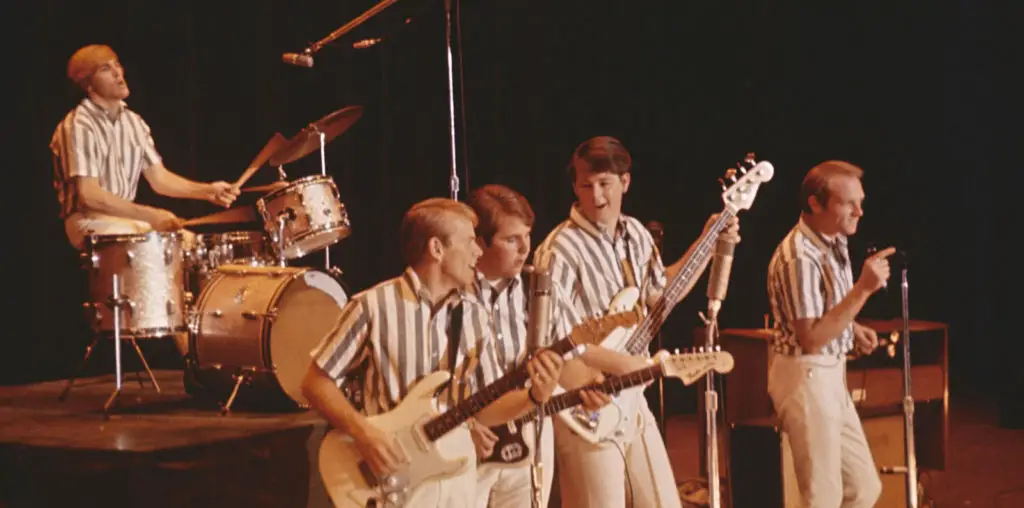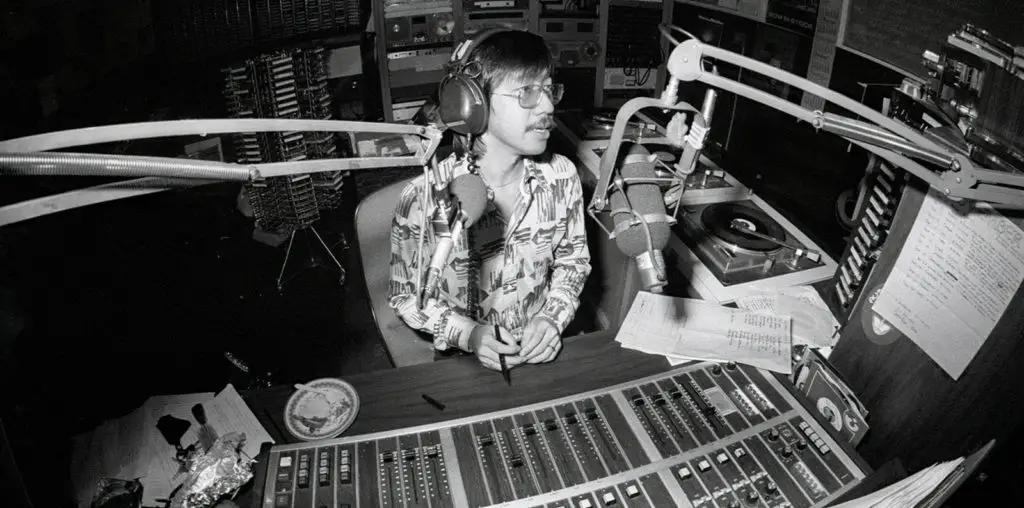
Writer-director Michael Treen’s The Session Man dives deep and fast, perhaps a little too fast, into the life and career of Nicky Hopkins. The classical-trained pianist, who fancies himself the reincarnation of Frederic Chopin, played on some of the greatest hits of the 20th century. He collaborated with The Who, The Rolling Stones, The Beatles, The Kinks, Quick Silver Messenger Service, The Grateful Dead, and many others. The filmmaker takes a balanced approach, with talking heads from Keith Richards, Mick Jagger, Dave Davies, Glynn Johns, and Harry Shearer. Each famous musician heaps praise upon Hopkins’s contributions. Hopkins appears in grainy video footage relating personal stories and giving historical context to the fabulous 1960s music scene in the United Kingdom.
Hopkins was born in a suburb of London in 1944. He emerged into a world where music was moving away from traditional jazz, morphing into skiffle, followed by rock ‘n roll and blues. The man began piano lessons at the age of 3 and later attended the Royal Academy of Music in London. With his God-given talent, Hopkins exploded and was in demand, and his work with many of the music royalty mentioned above. He could sweeten and elevate a tune with nuances, tweaks, and little textures on the piano that are aptly demonstrated throughout.
One of the big revelations in The Session Man is Paul McCartney asking Hopkins, whom he had known for over 20 years, if he would audition for Wings. Hopkins, at the height of his fame, auditioned only to lose to McCartney’s wife, Linda. Was a little favoritism in play, or was it intimidation over Hopkins’s massive talent? If so, it would be the same as the fate of drummer Pete Best, who was kicked out of the Beatles in favor of Ringo Starr when Best was thought to be more good-looking due to his smoldering expression than McCartney. To this day, Best has never been told why he was dumped.

“…the life and career of Nicky Hopkins…[a] classical-trained pianist…”
Treen jumps through the various elements swiftly. The early life of Hopkins and his obvious talent that raised him through the ranks is engaging. However, in a desire to cover a lot of material, some of it is abrupt or deserves more scrutiny. There is so much to Hopkins’s life, and this feels more like a primer than a complete biography at times. However, there are satisfying threads, and hearing from such influential music titans about the pianist’s indisputable talent will never get old.
The Session Man is also not afraid to dive into the dark side of the music industry. Hopkins was so in demand that he got very brief breaks between sessions. As soon as one album was done, the next one was right there to be laid down. The early diagnosis of Crohn’s disease plagued Hopkins for the rest of his life, and he would become addicted to alcohol and drugs to kill the pain. Eventually, he would go to rehab.
The Session Man attempts to cover a lot of material, occasionally feeling like an unofficial documentary. Some of the clips look like public domain material, and artists like Pete Townsend appear only in voice clips or stills. Full music tracks are never heard, save for a few times in the background. Do these things detract from the viewing experience? Not for one moment, you get a wonderful story that you perhaps didn’t know when listening to so many classic rock songs.

"…a wonderful story..."



Nicky was a huge talent & played (for my money anyway) at the Peak of the Stones power on that legendary ‘72 tour… as well as Exile, of course!
I agree. What’s rightly referred to as the Mick Taylor era of the Stones should also be called the Nicky Hopkins era, right through Time waits for no one.